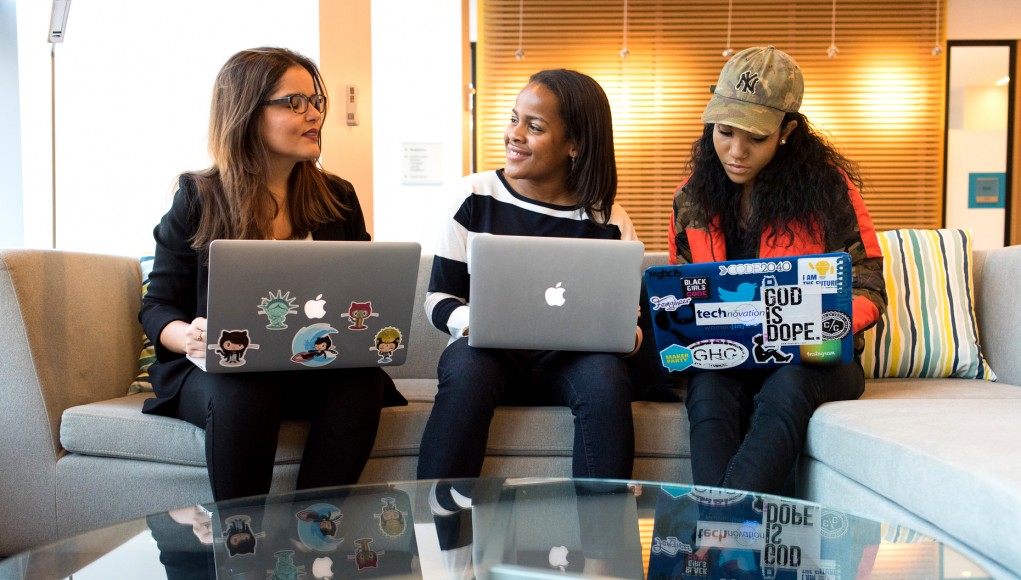You’ve likely heard it all before: Wisconsin is the worst place to raise Black children, Wisconsin has the highest incarceration rate for Black men, and that Wisconsin is the worst state to live if you’re Black.
Now, couple all of that with the fact that we (read Black women) live and work in a state where Republican legislators and Governor Walker repealed the equal pay act in 2012, and what do you get? You get more Black women who are underpaid, overworked, not credited/rewarded for our contributions, and straight up not invited to the table!
We’re often told to stay strong, hold on until something else better comes along, and don’t give up, and (insert the advice you’ve been given here if you’re a Black woman). We’re told to just move to another state where there are more opportunities for someone “like you.”
Like me? (Wait, what??…) That often means that Black women with at least a four-year degree and ambition should pack up their belongings and leave the state for a city where we can enjoy more successes and let’s be honest here — more brothas to choose from in hopes of stepping up our dating prospects. I hear you and I’ve considered ditching Wisconsin for southern hospitality … but why should I? Why should we? We’re living here and doing the work, so we deserve the rewards that come with putting in work just like every other group rewarded for it’s contributions. That’s exactly what this column will explore: Black women doing the work and what that means. From entrepreneurship and economic development, community organizing, the Black family, to leadership and more — we’ll explore issues directly related to Black women living, loving, and working in Wisconsin.
I very much believe in looking at issues with a solution-focused lens and it’s with that lens that I created the Black Women’s Leadership Conference. I appreciate the fact that I get booked to speak and lead workshops in Madison. At the same though, I had become fed up with being the only Black woman in the room or seeing the same handful of Black women at conferences and events geared towards women. For some folks, that’s cool because they may see others as competition. But, for me ,it’s not okay — at all.
So instead of sitting around in my annoyance, I used a break during a speaking engagement to create the outline of what a conference would look like with the needs of Black women in mind (see what I did there? I considered Black women right at the start of my idea). Examples of Black women in leadership positions have to be part of the solution if we want more Black women and girls to believe that they, too, can accomplish their career goals.
“Too see a Black woman in that office at Agrace was beautiful,” noted Brandice Hatcher, on Malika Evanco who will be presenting at the Black Women’s Leadership Conference this Friday.
Do you really want Black women to thrive? Or do you want the praises for simply saying that Black women deserve to thrive, too? Every day that I wake up and move about living, working, and loving, I have to decide what kind of person that I want to be. I can either be selfish and only consider myself in all of my dealings – or – I can decide that I want to leverage my skills, resources, and networks to help other Black women thrive. You and I know that regardless of who thinks Madison is liberal — it isn’t necessarily so for Black women. My goal with this column and my work as a social entrepreneur is to bring you along with me to shift the outcomes in a more positive direction for Black women. Why should you come along with me? Well, first of all, I’m tired just like so many other Black women. We (again read Black women) carry many burdens on a daily basis, so why should we also be burdened to change the outcomes alone? We shouldn’t. This work deserves your attention and involvement.
Black women like Jacquelyn Hunt are supporting families by providing back-to-school needs. Lisa Peyton-Caire is leading the movement to improve Black women’s health and wellness. Dasha Kelly is creating space for our children to thrive from the notebook to the mic and across the stage. Ali Muldrow is serving up hefty doses of the Black girl magic we can’t get enough of. And the woman who encompasses what it means to be a servant leader, Carola Gaines, does so much for the community that to hear about her having a spa day had me wanting to Milly Rock in her honor.
They are doing all of this at the same time raising children/grandchildren, holding up their end in their marriages/relationships, working 40-plus hours, showing up to support community events, traveling the country, volunteering, and more! Yet, we’re doing the work and our income isn’t matching our efforts, funding isn’t altogether matching our project needs, and microaggressions in the workplace cause us undue stress. Just being our authentic selves is “doing too much.” We’re priced out of housing, and let’s not even forget the long hours on public transportation just to get from home to work. You see the burden yet?
So, please, come along with me at least twice a month to explore these issues. That is if you’re willing to put some actions behind the many calls to address the many disparities alive and well in Wisconsin. I challenge you to to consider us (right at the beginning) in a very genuine and inclusive way. In the next column, come along with me to explore the force that is Atonye Adjei Marsh and the business, RibMasters, she created along with her husband. Find out what it took to launch the business, the sacrifices she’s had to make, and definitely what she needs in order to enjoy long-term success.




























